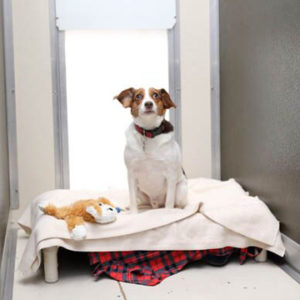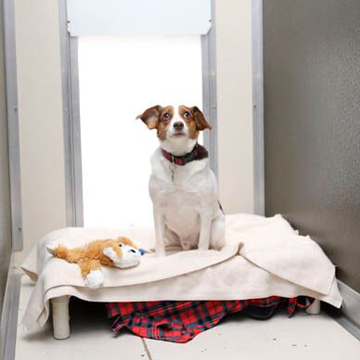 Morristown, TN
Morristown, TN
You probably know about the dangers of being overweight and obese. You hear it from your doctor, read about it, and see commercials advertising all types of weight-loss products. The obesity epidemic in the United States isn’t just restricted to people, though. According to the Association for Pet Obesity Prevention, 56 percent of all dogs in America were overweight or obese. Not sure how to help your dog shed those extra pounds?
Your pet experts at AllDogs Canine Care Center put together this list of tips:
- Take your dog to the vet – Helping your dog lose weight represents a significant lifestyle change for him or her. Make sure you’re prepared by getting the most accurate information possible from the person who knows more about your dog’s health than anyone—your veterinarian. Each time you go to the vet, they probably weigh your dog. Your vet can help you determine exactly how many pounds your dog needs to lose to be healthier, while also identifying any pre-existing conditions that could complicate a weight-loss regimen. Your veterinarian also can put together a plan while factoring in your dog’s breed and past health history.
- Feed the right portions, and at set times – As part of your goal to get your dog to a healthier weight, you may have been prescribed or recommended special food by your veterinarian. There’s probably a recommended portion on the can or bag, and you need to follow it to the letter. Read the instructions on your food, and give the precise suggested amount—no more, no less. Make sure your dog has access to fresh, clean water at all times. By keeping your dog on a regular feeding schedule, you’ll be sure you’re not underfeeding or overfeeding. It also won’t take long before your dog gets into the habit and knows when food is on its way.
- Ditch the treats, snacks, and table scraps – What dog doesn’t love treats? These snacks and treats can be a great motivation or reward, but also a source of many empty and excess calories. If you still need to use treats for motivation, switch to low-calorie options. Otherwise, take steps to keep your dog from snagging table scraps or food from you, your family, or even other animals in the house. This may entail crating your dog or otherwise isolating him when the rest of the family is eating.
- Get out there and walk – This can be good for you and your dog both when it comes to staying in shape. You’ll want to clear any exercise regimen with your veterinarian, but the ideal walk should be about 40 minutes each day. If you have an older dog or a dog with mobility issues, you may need to start with 10- or 15-minute walks, then work your way up to longer and more rigorous exercise.
The risks of obesity
Just like humans, your dog faces negative health consequences from being obese. The possible problems include pancreatitis, diabetes, hip dysplasia, and cardiac disease. Helping your dog slim down will help him lead a longer, happier, and healthier life. Sometimes, even the most dedicated dog owner has trouble finding the right weight-loss regimen. Consider getting your dog some exercise and socialization at the same time through the Playcare and Play camp programs at AllDogs Canine Care Center. Our Playcare sessions are held one-on-one between your dog and one of our experienced and compassionate staff members. Play camp puts your dog in a group setting with the other dogs under our care for what’s sure to be a tail-wagging good time. Find out more by calling (865) 475-2225.
AllDogs Canine Care Center is proud to serve our clients in the areas of Jefferson City and Morristown, Tennessee.



